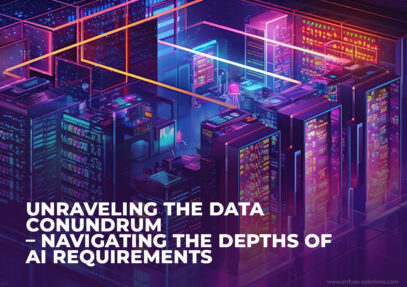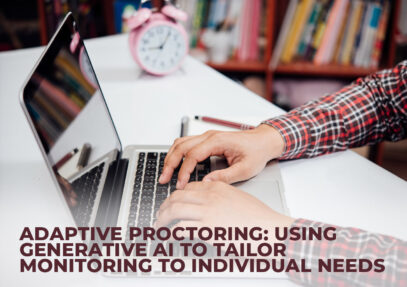
In today’s data-centric digital landscape, businesses are increasingly turning to sophisticated tools to harness and leverage their data effectively. Adobe Experience Manager (AEM) stands out as a powerful content management solution that can significantly enhance how organizations manage and utilize data. By integrating AEM within a data-driven environment, businesses can unlock their full potential, transforming their digital marketing and content strategies. This blog explores how to maximize AEM’s capabilities in a data-driven context.
What Is Adobe Experience Manager?
Adobe Experience Manager is a comprehensive content management system (CMS) that enables organizations to create, manage, and optimize digital experiences across various channels. AEM provides robust features for content management, digital asset management, and marketing automation, making it a pivotal tool for businesses looking to enhance their digital presence.
Key Features Of Adobe Experience Manager
1. Content Management: Streamlined tools for creating, editing, and managing web content.
2. Digital Asset Management: Efficient organization and retrieval of digital assets,
3. Personalization: Advanced capabilities for delivering personalized content to users.
4. Multi-Channel Delivery: Seamless content delivery across websites, mobile apps, and other digital channels.
5. Integration: Compatibility with various data sources and marketing tools for enhanced functionality.
The Importance Of Data In AEM
Data plays a crucial role in optimizing digital experiences and marketing efforts. Integrating data with AEM enables businesses to leverage insights for creating more targeted, relevant, and engaging content. Here’s how data enhances AEM’s capabilities:
1. Personalization: Data-driven insights allow for the creation of personalized content experiences that resonate with individual users.
2. Performance Optimization: Data helps in analyzing content performance and making informed adjustments to improve engagement.
3. Audience Segmentation: Data enables precise audience segmentation, allowing for targeted marketing campaigns and content delivery.
4. Content Strategy: Data informs content strategy by highlighting user preferences, trends, and behavior.
Techniques For Leveraging AEM In Data-Driven Environments
1. Integrating Data Sources
To maximize AEM’s potential, integrate it with various data sources to create a unified view of user interactions and content performance.
- CRM Systems: Integrate with Customer Relationship Management (CRM) systems to access customer data and enhance personalization efforts.
- Analytics Tools: Connect with analytics tools like Adobe Analytics to track user behavior and content performance.
- Marketing Platforms: Integrate with marketing automation platforms to streamline campaign management and data-driven decision-making.
2. Personalization And Targeting
AEM’s personalization features can be significantly enhanced by leveraging data to deliver tailored content experiences.
- Dynamic Content Delivery: Use data to deliver dynamic content based on user behavior, preferences, and demographics.
- Behavioral Targeting: Implement targeting strategies based on user interactions and engagement patterns.
- Content Recommendations: Utilize data-driven algorithms to suggest relevant content to users based on their browsing history and preferences.
3. Data-Driven Content Creation
Data-driven content creation ensures that the content produced is aligned with user interests and market trends.
- Content Insights: Analyze data to identify content themes and topics that resonate with your audience.
- Performance Metrics: Use performance metrics to guide content creation and optimization, ensuring content meets user expectations and achieves desired outcomes.
- Trend Analysis: Leverage trend data to create timely and relevant content that addresses current interests and issues.
4. Enhancing User Experience
Integrating data with AEM helps enhance the overall user experience by delivering more relevant and engaging content.
- User Journey Mapping: Use data to map out user journeys and optimize content delivery at each stage of the journey.
- A/B Testing: Conduct A/B testing to evaluate different content variations and determine which performs best with your audience.
- Feedback Loops: Implement feedback mechanisms to gather user input and continuously refine content and experiences.
5. Performance Monitoring And Optimization
Continuous monitoring and optimization are essential for maintaining high performance and relevance in your digital content strategies.
- Real-Time Analytics: Monitor real-time analytics to track content performance and user engagement.
- KPI Tracking: Set and track key performance indicators (KPIs) to measure the effectiveness of your content and marketing strategies.
- Optimization: Use data insights to make ongoing adjustments and optimizations to improve content effectiveness and user satisfaction.
Best Practices For Maximizing AEM In Data-Driven Environments
1. Data Integration: Ensure seamless integration of AEM with other data systems and tools to create a cohesive data ecosystem.
2. Personalization Strategy: Develop a robust personalization strategy based on data insights to enhance user engagement and satisfaction.
3. Content Governance: Implement strong content governance practices to maintain content quality and consistency across channels.
4. Training And Adoption: Provide training for teams to effectively use AEM’s data-driven features and ensure widespread adoption.
5. Regular Reviews: Conduct regular reviews of data and content performance to identify areas for improvement and optimization.
Conclusion
Unlocking the full potential of Adobe Experience Manager in data-driven environments involves leveraging data to enhance content creation, personalization, and performance optimization. By integrating AEM with various data sources and employing data-driven techniques, businesses can create more relevant and engaging digital experiences. Embrace the power of data within AEM to transform your digital strategies and drive sustained success in the competitive digital landscape.
Partner with EnFuse Solutions India for expert Adobe Experience Manager services and take your data-driven content management to the next level.

















Comment